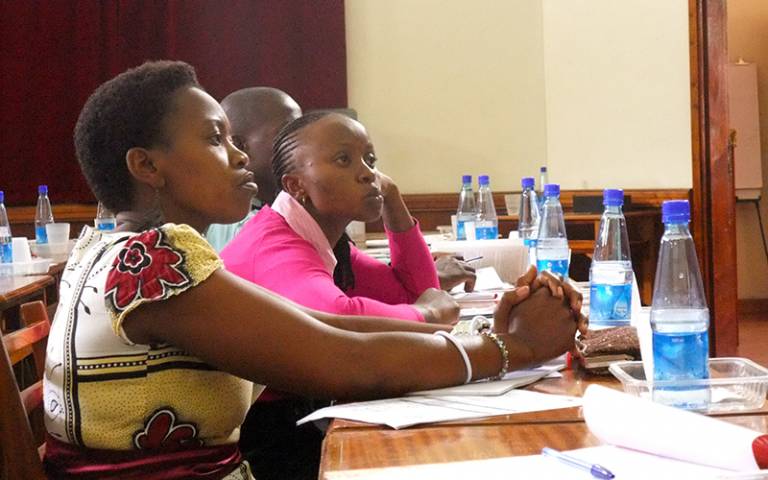Innovative pedagogy to improve critical thinking skills.

April 2015 - March 2019
This three-year study is funded by the UK Department for International Development (DFID) and the Economic and Social Research Council (ESRC) and is co-ordinated by a team of researchers at IOE, London.
The study aims to understand how innovative pedagogy in higher education can improve the critical thinking skills of undergraduate students.
This knowledge will be crucial in allowing higher education systems to improve their practice and drive a thriving economy and an inclusive society.
The project is being implemented in three countries: Kenya, Botswana and Ghana.
- Project team
Principle investigators
- Dr Rebecca Schendel, IOE
- Dr Tristan McCowan, IOE
Research team
- Dr Caine Rolleston, IOE
- Professor Andrew Tolmie, IOE
- Professor Richard Tabulawa, Botswana Research Leader, University of Botswana
- Dorcas Molefe, Botswana Research Officer, University of Botswana
- Dr Christine Adu-Yeboah, Ghana Research Leader, University of Cape Coast (Ghana)
- Dr Christopher Kwaah, Ghana Research Officer, University of Cape Coast (Ghana)
- Dr Mary Omingo, Kenya Research Leader, Aga Khan University
- Mercy Atieno, Kenya Research Officer, Strathmore University (Kenya)
- William Nicholas, IOE
- Alex Larmour, IOE
- Dr Marika Tsolakis, IOE
- Edwina Peart, Independent Researcher
- Impacts
This study is intended to improve student learning outcomes at African higher education institutions by providing key stakeholders with contextually relevant evidence about the kinds of interventions that are likely to have a substantive impact on the development of student critical thinking ability.
The identification of such interventions - and, ultimately, their successful implementation - will have a positive impact on both the academic experiences and learning outcomes of undergraduate students across the region.
In addition to directly impacting student experiences and abilities, the results will have an indirect positive impact on the development potential of African universities, as the identification of such interventions will help institutions to improve the capacity of their graduates to contribute to their economies and societies.
 Close
Close

